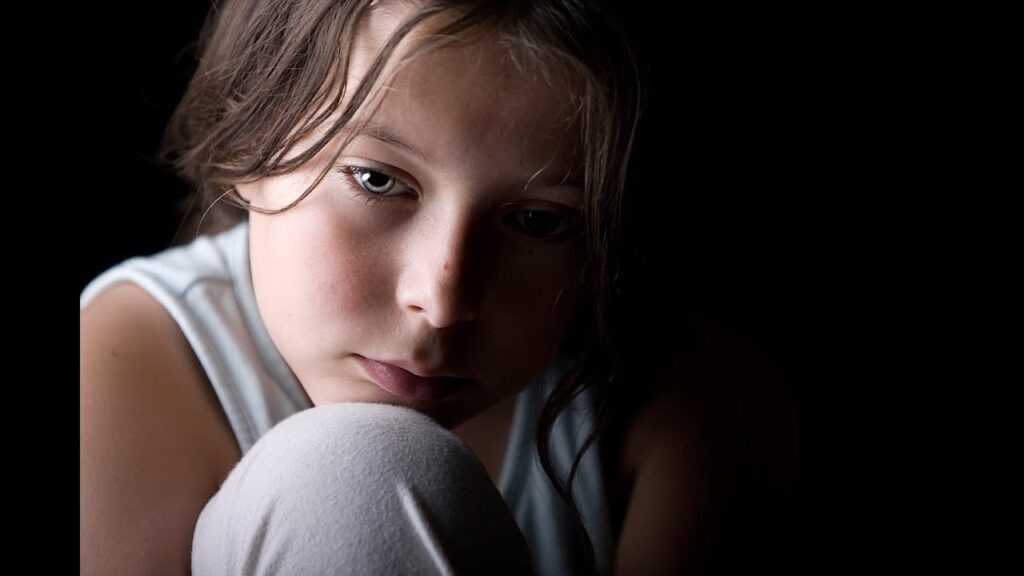[vc_row][vc_column][vc_column_text]
When many of us think of depression, we think of it as being an illness that mostly affects adults, but that’s not always the case. Children can also experience mental health issues. Of course, children experience highs and lows in their mental state just like adults do, but they can also experience mental health conditions like depression, anxiety, obsessive-compulsive disorder, bipolar disorder, and more. Childhood is a time that comes with a lot of changes, physically, emotionally, and developmentally, so it makes sense that sometimes they feel blue. However, children are often underdiagnosed for depression because these mood changes are assumed to be normal developmental shifts.
Before the pandemic, it was estimated that about 3.2 percent of children had a diagnosis of depression. It stands to reason that after a year of virtual schooling, isolation, loss, and fear, that number will be higher. Our kids have been through a really tough time – and we should be proud of them for that no matter how they’re coping. This also makes it an especially important time to learn about the difference between depression in an adult and depression in a child. When we know what to look out for, we can step in and give the children in our lives support when they need it.
This can also be an opening to start talking to your child about mental health in general – many people are struggling right now, and they’ve probably noticed that at least on some level. Make it normal to talk about feelings and mental health in your home. Tell your child how you’re feeling. Let them see you respond to cope in a healthy way so they learn by your example. Many people are afraid to talk to their children about topics like depression because they think their kids are too young, but kids understand a lot more than we give them credit for. You can talk about anything in a developmentally appropriate way, so don’t feel like you have to hide mental health from your children.
Signs of depression in children often look a little different to signs of depression in an adult. One of the major signs of depression in children is irritability or anger, whereas adults often experience low mood and hopelessness. Often, children will experience physical symptoms of depression as well, like stomach and digestive issues, headaches, and body aches.
If you’re concerned that your child may be dealing with depression, here are some signs to watch out for:
- Impulsivity
- Aggression
- Feeling unrelenting guilt or shame
- Clinginess to a parent or caregiver
- Difficulty focusing
- Problems with decision making
- Separation anxiety
- Not wanting to do things they used to enjoy
- Sensitivity to rejection
- Vocal outbursts
- Extreme shyness
- Change in appetite
- Change in weight
- Lack of energy
- Sleep problems
- Feeling worthless, rejected, or unloveable
- Frequently feeling sad or tearful
- Recurring thoughts of death or self-harm
- Withdrawal from friends and family
- Changes in grades or school performance
Now that you know the signs to keep an eye out for, you will be better prepared to spot childhood depression. Any mental health disorder can be scary and bring up a lot of questions. Here are some important things to remember about childhood depression.
The hallmark sign of something becoming a problem is when it gets in the way of everyday functioning. You may not be sure if this is just a phase for your child or if this is something you need to be concerned about. Ask yourself: is this getting in the way of their everyday functioning? Does their change in mood get in the way of their everyday life? Are they able to participate in all of their activities? Are they keeping up with schoolwork? Is their social life suffering?
It can be tricky to distinguish if something is just the regular blues or depression, so as you assess your child keep their level of functioning in mind. Also, notice how long their symptoms last. Is this something that goes away in a few days? Or is it lasting for weeks at a time? Usually, when you notice that symptoms are lasting for longer than two weeks, there’s something going on.
Children don’t always have the language to express how they’re feeling. Teenagers often try to hide their feelings from their caregivers because they’re scared they’ll be judged. This makes it especially important to communicate with your child to get an idea of what they’re going through. It can also be helpful for you to model emotional communication for your children. Kids absorb a lot from the environment around them, so if they see you making space for your feelings and talking about mental health without shame, they will feel safer confiding in you.
Depression is a treatable illness. It can be a helpless feeling to watch your child suffer. However, remind yourself that depression is a treatable illness. There are many options out there for treatment, including psychotherapy, medication, and behavioral changes. Your child clearly has someone looking out for them if you’re reading this article. That will go a long way.
If you’re concerned that your child is experiencing depression, you don’t have to deal with it alone. Talk to their doctor + reach out for mental health support for both you and your child.
[/vc_column_text][/vc_column][/vc_row][vc_row][vc_column][/vc_column][/vc_row]

